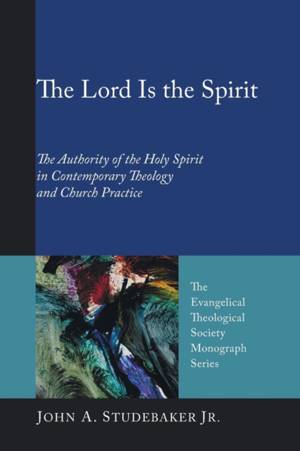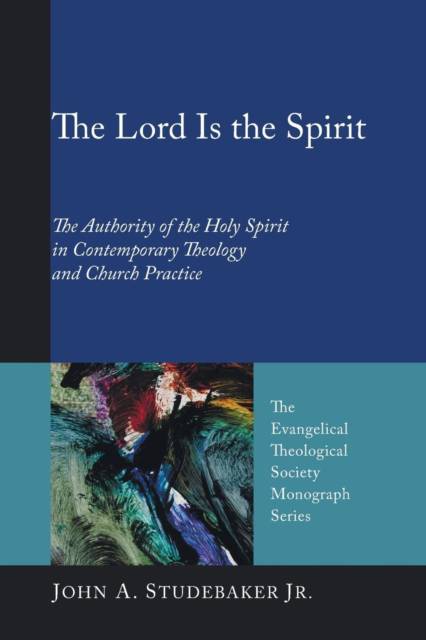
Bedankt voor het vertrouwen het afgelopen jaar! Om jou te bedanken bieden we GRATIS verzending (in België) aan op alles gedurende de hele maand januari.
- Afhalen na 1 uur in een winkel met voorraad
- In januari gratis thuislevering in België
- Ruim aanbod met 7 miljoen producten
Bedankt voor het vertrouwen het afgelopen jaar! Om jou te bedanken bieden we GRATIS verzending (in België) aan op alles gedurende de hele maand januari.
- Afhalen na 1 uur in een winkel met voorraad
- In januari gratis thuislevering in België
- Ruim aanbod met 7 miljoen producten
Zoeken
The Lord Is the Spirit
The Authority of the Holy Spirit in Contemporary Theology and Church Practice
John A Studebaker
€ 69,45
+ 138 punten
Uitvoering
Omschrijving
Although the doctrine and work of the Holy Spirit is no longer being ignored in theology (as was often the case in centuries past), the authority of the Spirit remains essentially undefined. The need for such a definition, however, is urgent. Some dangerous trends in the contemporary understanding of the Spirit have developed (trends that can only be exposed through careful exegesis of Scripture and theological clarification). Indeed, some contemporary models often leave us with a nonauthoritative "Spirit" predisposed toward universalism, experientialism, or panentheism. This work will attempt to show that the nature of the Holy Spirit's authority can be clearly defined through biblical and systematic theology. When we investigate the Spirit's place within the pattern of divine authority, as specified in Scripture, we discover that the Holy Spirit indeed possesses a unique authority as divine Person, Christ's Executor, Teacher, and Governor of the Church. Such a work will be helpful for both the theologian and the pastor. First, definitions of the Spirit's authority will be developed through historical, exegetical, and theological analysis. Then these definitions will be applied to specific church practices, including hermeneutics, church structure and guidance, and Christian spirituality. A response will also be given to those "practical theologies" that are subtly diminishing the Spirit's authority in relation to the contemporary church.
Specificaties
Betrokkenen
- Auteur(s):
- Uitgeverij:
Inhoud
- Aantal bladzijden:
- 406
- Taal:
- Engels
- Reeks:
- Reeksnummer:
- nr. 7
Eigenschappen
- Productcode (EAN):
- 9781556354366
- Verschijningsdatum:
- 1/01/2008
- Uitvoering:
- Paperback
- Formaat:
- Trade paperback (VS)
- Afmetingen:
- 165 mm x 230 mm
- Gewicht:
- 557 g

Alleen bij Standaard Boekhandel
+ 138 punten op je klantenkaart van Standaard Boekhandel
Beoordelingen
We publiceren alleen reviews die voldoen aan de voorwaarden voor reviews. Bekijk onze voorwaarden voor reviews.









